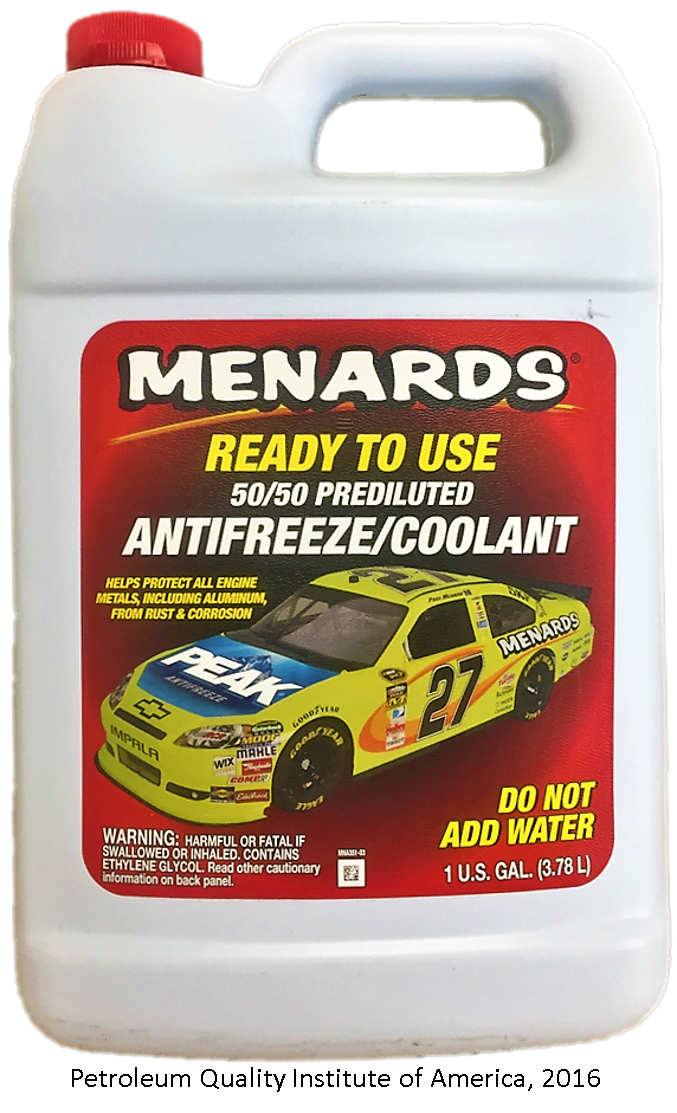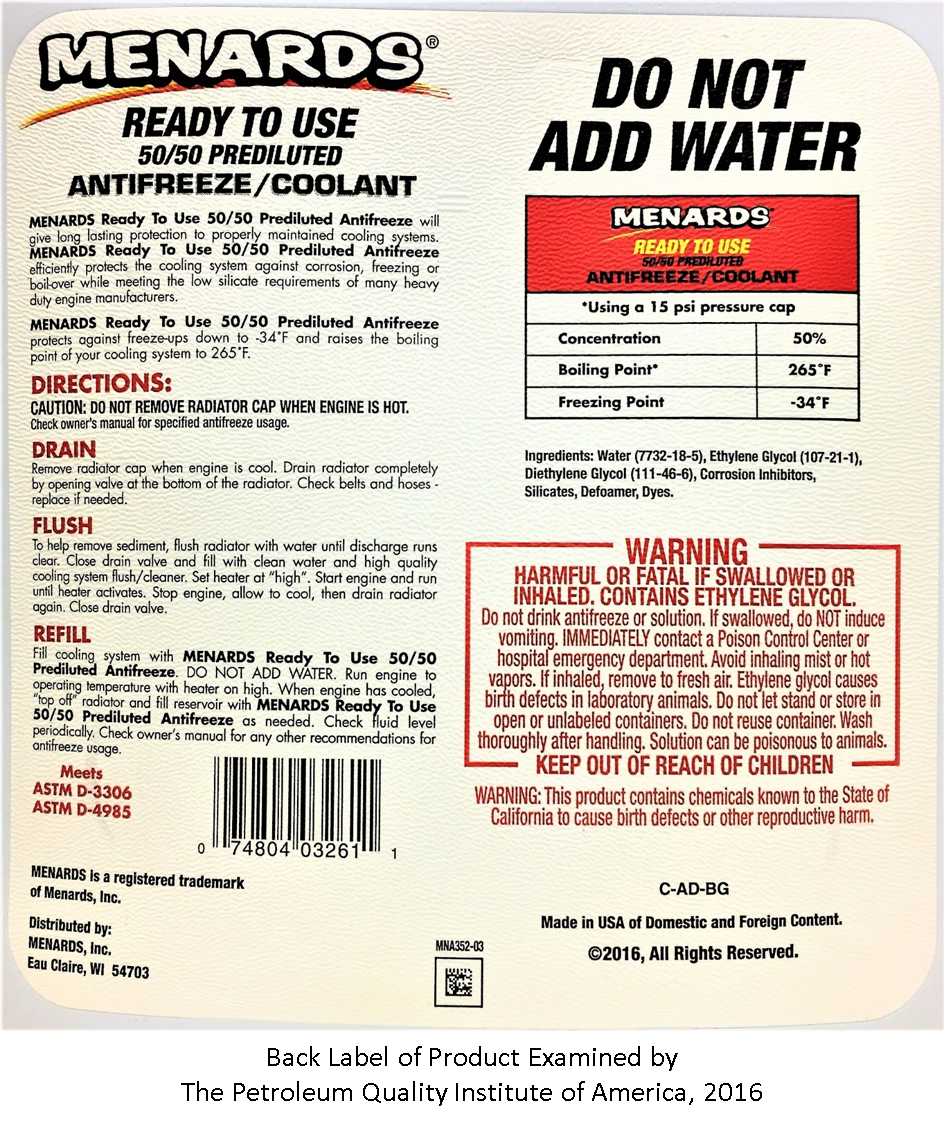

Click above for larger image

Click above for larger image
Corporate Office:
Menards, Inc.
5101 Menard Drive
Eau Claire, WI 54703
Website(s): www.menards.com
The Petroleum Quality Institute of America (PQIA) is an independent resource for information and insights on the quality of lubricants in the marketplace. Our mission is to serve the consumer of lubricants by randomly sampling and independently testing lubricants taken from the field. Test results are posted along with the brand names on the PQIA website. This webpage provides an analysis on the brand detailed below.
The following are the test results for the sample examined.
Distributed By: Menards, Inc. Eau Claire, WI
Purchased at: Mishawaka, IN
Date of purchase: 11/16/2016
Website(s): www.menards.com
The results of the tests conducted on this sample are consistent with the labeled claims.
 |
Physical Properties |  |
| Chemical Analysis |  |
|
| Labeling |  |
Note: Although laboratory tests alone cannot be used to establish if coolant meets standards, they can be used to determine if it doesn't.
| Physical Properties and Chemical Analysis | MENARDS |
| Percent Antifreeze, (Based on Percent Glycol) | 51 |
| Freeze Point, (ASTM D3321) in ⁰F | -35 |
| Bitterant, (ASTM D7704) in ppm | 39 |
| pH, (ASTM D1287) | 11.07a |
| Color, (Visual) | Green |
| Ion Chromatography (ASTM D5827) | |
| Glycolate, ppm | Not Detected |
| Formate, ppm | Not Detected |
| Chloride, ppm | 1 |
| Sulfate, ppm | Not Detected |
| Nitrite, ppm | Not Detected |
| Nitrate, ppm | 1,149 |
| Phosphate, ppm | 3,160 |
|
|

